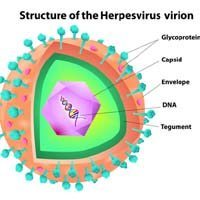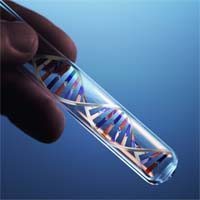New Data Suggest a Mesothelioma Blood Test is Possible
 A new technology that looks for genetic material from cancer cells in the blood could open the door to the fastest, easiest way yet to diagnose early malignant pleural mesothelioma.
A new technology that looks for genetic material from cancer cells in the blood could open the door to the fastest, easiest way yet to diagnose early malignant pleural mesothelioma.
The test, which has already shown potential for early detection of lung cancer, was developed by a California-based life sciences company called GRAIL. GRAIL-funded researchers shared the data on the test at the American Society of Clinical Oncology annual meeting this summer in Chicago.
The results are part of the preliminary data from the company’s ongoing Circulating Cell-Free Genome Atlas study, a huge study on cancer diagnosis that aims to enroll 15,000 people (70 percent with cancer and 30 percent without) from 141 sites in the US and Canada.
“We’re excited that the initial results from the CCGA study show it is possible to detect early-stage lung cancer from blood samples using genome sequencing,” said lead study author Geoffrey R. Oxnard, MD, of Dana-Farber Cancer Institute.
Early Diagnosis is Key to Mesothelioma Survival
Mesothelioma or asbestos cancer typically carries a grim prognosis, largely because it is almost never detected at an early stage.
Many pleural mesothelioma patients have no idea they are even sick until they have just a few months to live. But a simple blood test for early mesothelioma diagnosis could change that.
Cancer cells contain genetic mutations and alterations that contribute to their ability to grow out of control, spread to other parts of the body, and evade detection by the immune system.
The new blood test looks for these tiny bits of genetic information shed by cancer cells and released into the bloodstream. Known as a “liquid biopsy”, the technology is already being used to develop targeted therapies for lung cancer, but has not been thoroughly tested as an early detection tool.
Cancer Blood Test Shows Good Accuracy
The cancer blood test developed by GRAIL involves three different assays that are each slightly different in the type of DNA information they can detect. Researchers tested the ability of the three assays to find cancer-indicating genomic markers in 127 lung cancer patients.
According to a news release from Dana-Farber Cancer Institute where the research is being conducted, all three assays were able to detect lung cancer with few false positive results.
Among the 580 healthy test subjects, fewer than 1 percent showed any cancer-like signals. Two of those five people were found to actually have cancer, supporting the test’s potential to detect cancers such as malignant mesothelioma at an earlier stage.
“There is an unmet need globally for early-detection tests for lung cancer that can be easily implemented by healthcare systems,” says Dr. Oxnard. “These are promising early results and the next steps are to further optimize the assays and validate the results in a larger group of people.”
Right now, mesothelioma diagnosis typically involves a combination of tests, including imaging scans, lung fluid and blood analysis, and tissue biopsy. If mesothelioma is suspected, the doctor will also take a thorough history to determine if there was any asbestos exposure.
Sources:
Oxnard, G, et al, “Genome-wide sequencing for early stage lung cancer detection from plasma cell-free DNA (cfDNA): The Circulating Cancer Genome Atlas (CCGA) study”, June 4, 2018, ASCO Meeting Library, https://meetinglibrary.asco.org/record/160036/abstract
“Blood test shows potential for early detection of lung cancer” June 02, 2018, Dana-Farber Cancer Institute news release, https://www.dana-farber.org/newsroom/news-releases/2018/blood-test-shows-potential-for-early-detection-of-lung-cancer/





